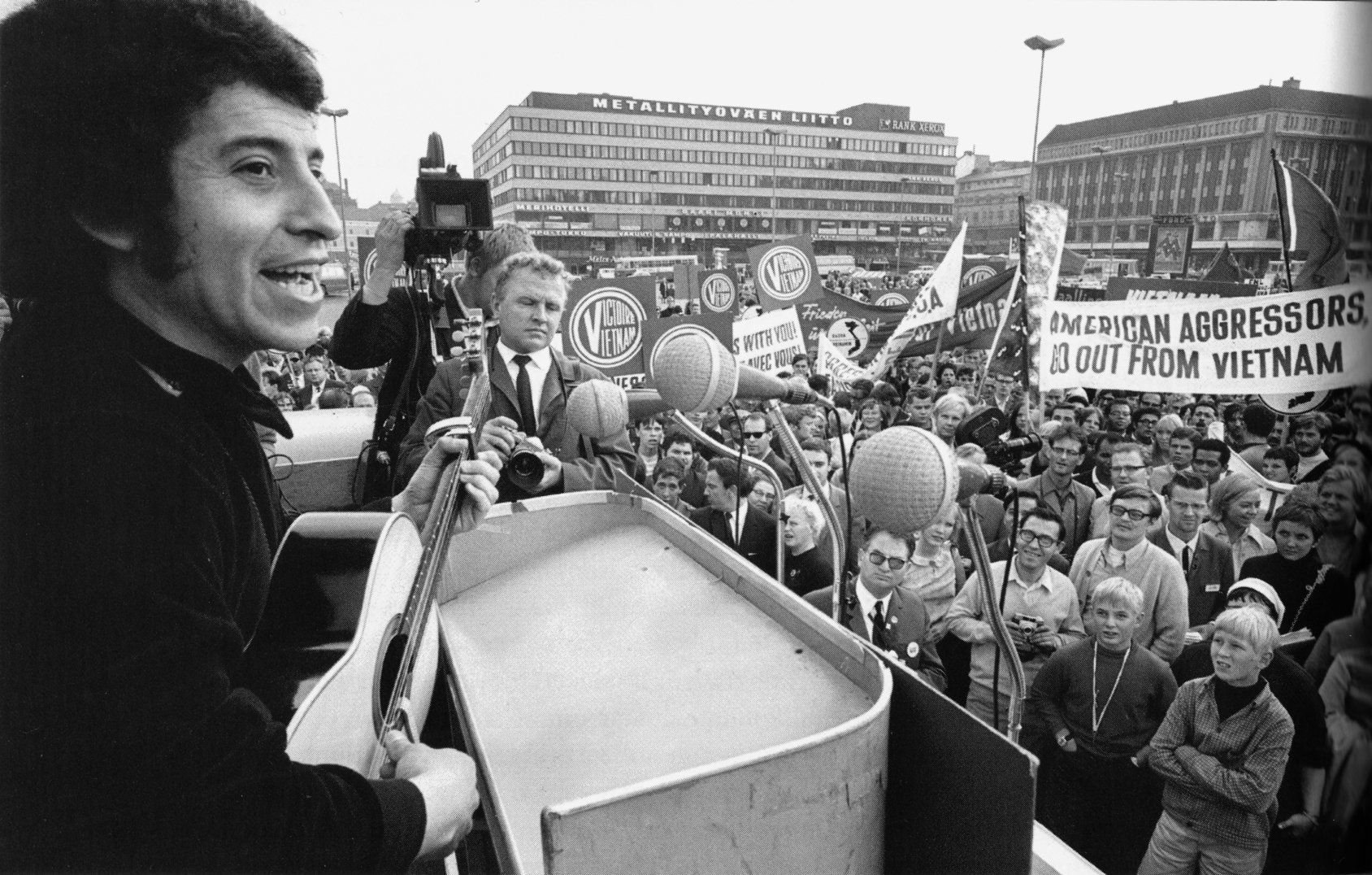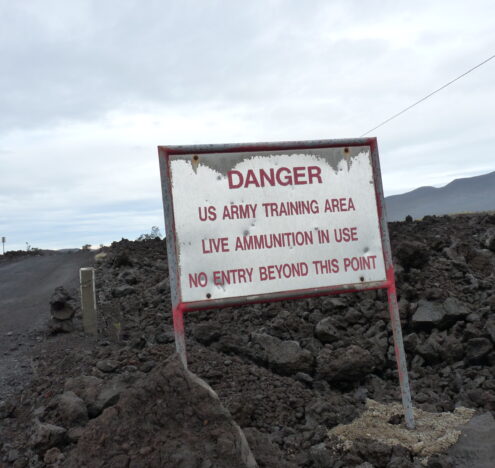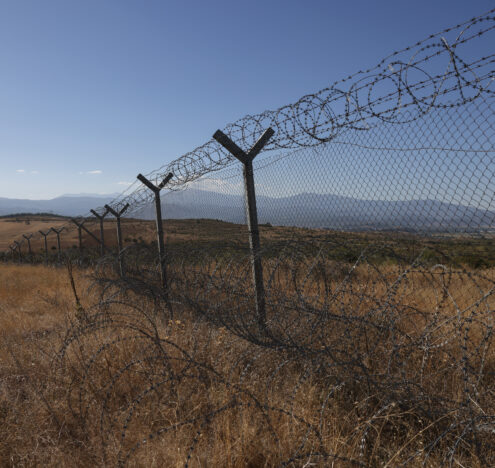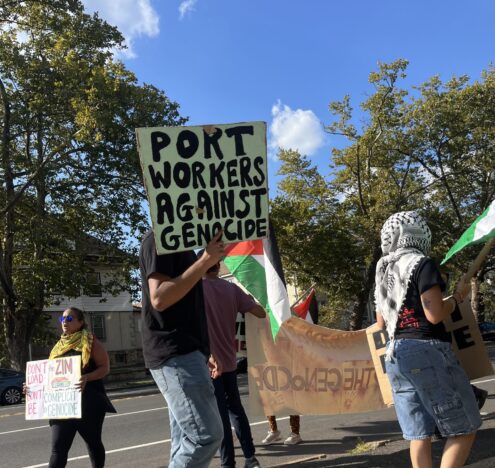An investigative documentary that aired on Chilevision in 2012, titled “Quién mató a Víctor Jara” (Who Killed Victor Jara), was instrumental in revealing the name of the National Intelligence Directorate (DINA) agent — the member of Chile’s notorious secret police — who killed the beloved nueva cancion singer in the early days of the 1973 US-backed dictatorship in Chile.
Former conscript Jose Alfonso Paredes Marquez, who was interviewed for the documentary, revealed the name of Victor Jara’s killer: Pedro Pablo Barrientos Nuñez, a former DINA agent from the Tejas Verdes contingent, who was trained by the notorious School of the Americas now known as the Western Hemisphere Institute for Security Cooperation.
On July 19, 2023, Pedro Pablo Barrientos Nuñez’s name briefly made headline news when he was stripped of his US citizenship by a Florida court, on account of repeatedly giving false information on his application, including concealing that he participated in extrajudicial executions in Chile. Barrientos had been living in the US since July 1990, the year when Chile began its democratic transition and Patricio Aylwin took office as President following the plebiscite that Pinochet lost.
Tracked down and interviewed for the documentary, Barrientos denied his involvement, stating he had no knowledge of the Estadio Chile or Victor Jara, while adamantly asserting he would not return to Chile to face justice because he hadn’t killed anyone.
For Jara’s family and indeed, all Chileans adversely affected by the dictatorship of Augusto Pinochet, the developments in Barrientos’s case may contribute an additional step towards his extradition to Chile, where he would face the Chilean courts for his role in killing Jara.
Pioneer of the Chilean New Song Movement
Jara was one of the pioneers of the Chilean New Song movement, alongside Patricio Manns, Isabel and Angel Parra, and Rolando Alarcon. In 1969, together with Quilapayun, Jara performed Plegaria a un Labrador in the first Chilean New Song Festival, ushering in a form of protest song that was initiated by Violeta Parra and which would become synonymous with the Chilean left wing. Plegaria a un Labrador would come to characterize the Chilean New Song style and the trajectory the movement would take as Chile moved towards socialism.
In the same year, during a protest demonstration called by trade unions and the student federation, Jara sang Preguntas por Puerto Montt (Questions about Puerto Montt) which was a direct political confrontation about a massacre that took place during the Presidency of Eduardo Frei Montalva. Under the order of then Interior Minister Edmundo Perez Zujovic, the Chilean police murdered 10 people and injured 70 when disrupting a collective protest of 90 families squatting on land in Puerto Montt where they hoped to be granted permission to build their homes. It was this song that initially made Victor a target for Chile’s right wing.
As the Chilean New Song movement gained traction in Chile, the US was backing Chile’s right wing in preparation for the coup that would overthrow Allende’s socialist government and embark upon a nationwide purge that would murder Jara, among thousands of other Chileans.
In December of the same year, the coalition of left-wing parties known as the Unidad Popular published its manifesto which promised the implementation of a social program that would prioritize education, health, and housing, while also nationalizing the country’s resources.
The Unidad Popular sought to engage the masses in social mobilization. “The revolutionary transformations that the country needs can only be carried out if Chileans take power into their own hands and exercise it effectively,” the manifesto partly stated.
The Chilean New Song Movement rallied behind the Unidad Popular and contributed songs to the electoral campaign, notably Venceremos which became the party’s hymn and was written and composed by Jara, Sergio Ortega, and Rolando Alarcon.
As the Chilean New Song movement gained traction in Chile, the US was backing Chile’s right wing in preparation for the coup that would overthrow Allende’s socialist government and embark upon a nationwide purge that would murder Jara, among thousands of other Chileans.
Victor’s Murder at the Estadio Chile
As a result of Paredes’ testimony, in December 2012, the Santiago Court of Appeals indicted Núñez and Hugo Sánchez Marmonti for Jara’s murder, and Roberto Souper Onfray, Raúl Jofré González, Edwin Dimter Bianchi, Nelson Hasse Mazzei, and Luis Bethke Wulf as accomplices to the killing. The court also requested Núñez’s extradition from the US.
Together with other staff members and students, Jara was detained from the Technical University in Santiago and taken to Estadio Chile on September 12, 1973, which was controlled by the Tejas Verdes Regiment. Military personnel recognized Jara and singled him out for severe torture. On September 16, all detainees were transferred, except for Jara and Littre Quiroga, who was a lawyer, a Communist Party member, and the General Director of Prisons Services during Allende’s presidency.
According to Paredes’s testimony, Barrientos shot Jara at point-blank range because the singer would not cooperate with the interrogation, and ordered the conscripts to riddle his body with bullets. Other former conscripts’ testimonies corroborated Paredes’s version of events, while another testimony by Jose Navarrete Barra points towards Barrientos in 1979 boasting he had killed the singer at the Estadio Chile.
Jara would have ended up one of the thousands disappeared during the dictatorship, but his body, ravaged by torture and 44 bullet wounds and dumped outside near the Metropolitan Cemetry, was recognized by some women. His body was loaded along with others on a van to be disposed of in a mass grave, but someone working at the morgue recognized the singer and alerted his wife, who was able to claim the body and give a quiet burial.
Justice for Victor Jara
The documentary was instrumental in breaking down parts of the dictatorship’s impunity surrounding Jara’s murder. The Jara family’s lawyer, Nelson Caucoto noted that the officers’ indictment in 2012, however, was solely the result of officials carrying out the investigation, while the Chilean Armed Forces remained uncooperative. “The Army has not collaborated at all in terms of identifying the perpetrators of this serious crime,” Caucoto stated. Jara’s case, he declared, was of national and international significance.
With Barrientos still living in the US, the Center for Justice and Accountability (CJA), a global human rights organization based in San Francisco, filed a civil lawsuit against the killer in Jacksonville, Florida, on behalf of Jara’s family in September 2013. It took three years for the Florida court to move forward with the case. The trial began on June 13, 2016, and details of what happened in the Estadio Chile, as well as Barrientos’ presence and role started to emerge. Former agents who were witnesses in the case testified that Barrientos was in charge at the Estadio Chile and that he would brandish his pistol, saying, “This is the one that I killed [Victor Jara] with.”
The trial summary reveals various inconsistencies by Barrientos in his depositions, stating that he had no idea of the Estadio Chile or Victor Jara before 2009, as well as the lies on his immigration application. Following an interrogation with the Federal Bureau of Investigation in 2012, Barrientos sought to hide his assets in preparation for the possibility of facing trial for Jara’s murder. During the trial, Barrientos was more focused on the latter than his involvement in Jara’s killing.
On June 27, 2016, the jury found Barrientos guilty of the torture and murder of the iconic Chilean singer, and ordered him to pay $28 million in damages to the family. The CJA’s Legal Director at the time, Kathy Roberts, described the trial as the first “seeking accountability for the death of Victor Jara. The verdict in this case represents another significant step in understanding what happened at the Chile stadium in the first days after the 1973 coup.”
Will Barrientos Face Extradition to Chile?
The US and Chile signed an extradition treaty on June 5, 2013, which imposes “mutual obligations to extradite fugitives at the request of a party subject to conditions set forth in the Treaty.” While the extradition treaty does not allow the extradition of wanted persons if the crime is of a political nature, the extradition treaty with Chile notes that “certain crimes shall not be considered political offenses, including murder, sexual assault, kidnapping or other crimes of violence.” While the military coup is indeed of a political nature, Barrientos, as well as other DINA agents, committed crimes against humanity. Therefore the basis for extradition exists, although the process is usually drawn out.
For memory and rights organizations in Chile, the news also reflected a lack of political will by governments to allow justice to function effectively. The Victor Jara Foundation issued a statement noting that Barrientos applied for citizenship to escape justice in Chile when his name was linked to the singer’s murder. Noting the progress made as a result of the CJA’s efforts, the Foundation contrasted the achievement in the US with the apathy of Chilean governments.
“Despite the fact that the Chilean State officials have done their job diligently, we must point out that there has not been the real political will of the Chilean State and its successive governments to manage and obtain the extradition of Mr. Barrientos,” the statement partly read.
Chilean President Gabriel Boric has emphasized the importance of strengthening the country’s collective memory with regard to the dictatorship victims, including the disappeared. It is expected, although not guaranteed, since no news has yet been forthcoming, that the Chilean Foreign Ministry will act to extradite Barrientos to face trial in Chile, thus distinguishing itself from the culture of impunity that has been characteristic of Chilean governments since the democratic transition.




















